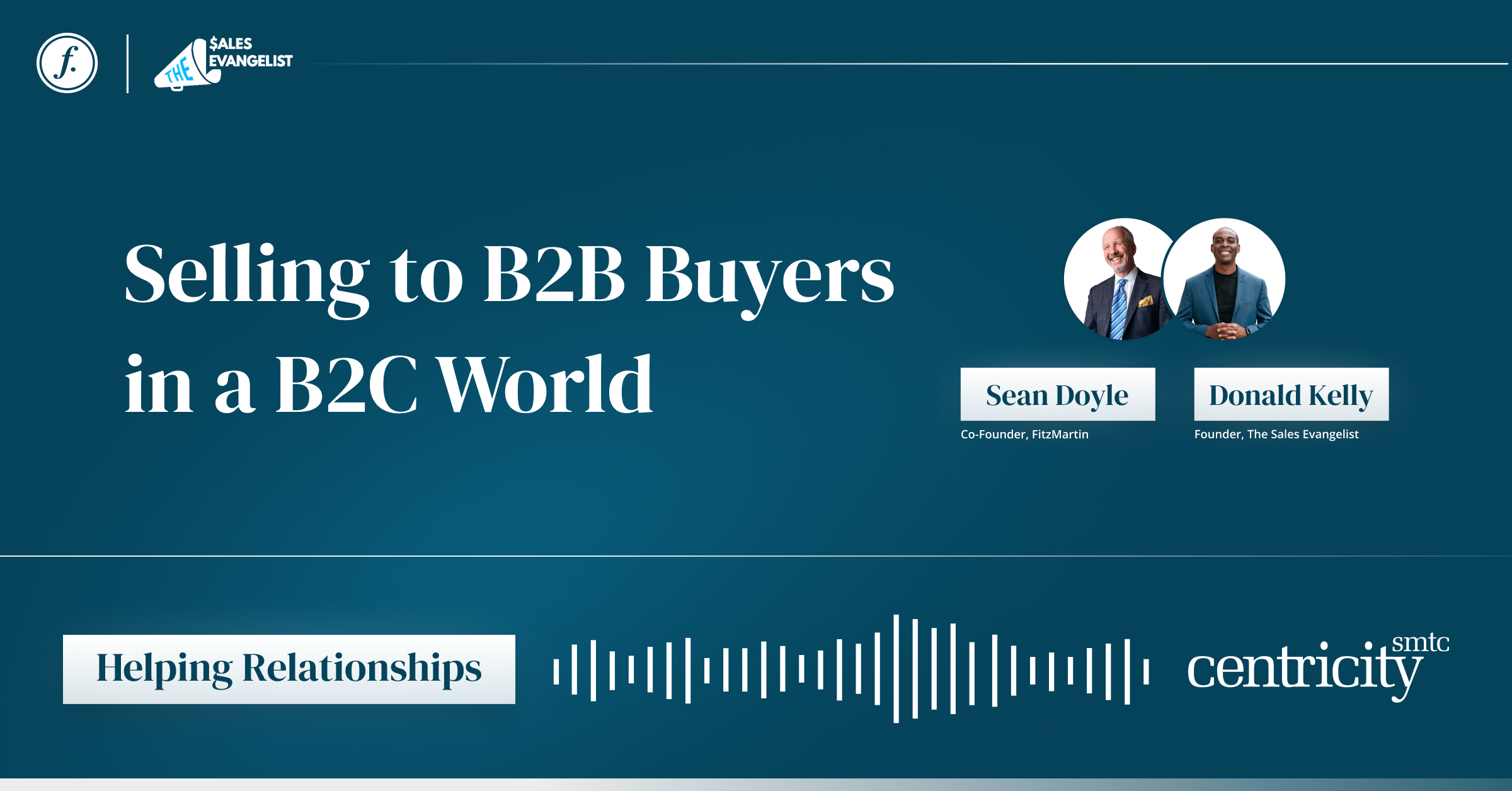
We live in a B2C world, where buyers expect to be treated like consumers–even in a B2B transaction. There’s really no way around it. Consumers today expect the buyer’s journey to be convenient, frictionless and even enjoyable. It should not be shocking that an increasing number of B2B buyers are trying to get that B2C experience in the B2B world. After all, in some form or fashion, you are a consumer and appreciate an enjoyable customer experience, right?
For B2B sellers, this reality can be a bit daunting because the needs of B2C buyers don’t seem to effectively align with B2B buyers. There are, however, more overlaps than you may think (go back to our point above about how B2B buyers are also B2C customers outside of the office). Here we share five B2C techniques that B2B salespeople can introduce into the sales process to provide prospects the ease of purchasing they’re looking for.
Use Self Help
One of the easiest, and most effective, ways to approach sales in a B2C manner is to give prospects self help. According to a report from McKinsey, 8 out of 10 B2B buyers in the US said they are willing to spend upwards of $50,000 in digital self service transactions. This incredible statistic is one that should be kept in mind during the sales journey. Implementing ways for buyers to self help provides them with the opportunity to further their businesses through your product or service. Yet in providing self service models, salespeople cannot remove themselves too much from the sales process. A Gartner study revealed that 23% of buyers utilizing the self service model end up with buyer’s remorse. Why? Because even though they received the service they wanted, they still longed for some level of technical guidance. While providing prospects with the self help space they request, salespeople must also carefully balance their role as helpful consultants, ready and willing to guide prospects in making the best decision. This will not only help prospects avoid buyer’s remorse, but it builds trust as well.
Utilize Consultative Selling
The importance of acting as a helpful guide, often referred to as consultative selling, cannot be stressed enough. An all-too-common issue among sellers is pushing their product or service too aggressively. Doing so clearly demonstrates to the prospect that you’re more concerned with what’s best for you (i.e., closing a sale) than what’s best for them, and it’s a guaranteed way to lose the sale. With consultative selling, salespeople keep the focus on the needs of the buyer, guiding the prospect toward the solution that is best for them. This mindset fosters trust between the salesperson and the buyer.
Offer Testimonials
So often, marketing teams view testimonials strictly as early-stage tools to garner attention or drive traffic to a website. While that can be helpful, testimonials can play a prominent role for late-stage prospects as well. When prospects are moving closer to making a commitment, they seek information that can be trusted. They want to feel safe that moving forward is in their best interest. Buyers are far more likely to trust the review of another buyer than a business they don’t know much about. Testimonials from previous buyers are incredibly relevant to prospects, and they go a long way toward getting the prospect to closing the deal.
Give Early Access
Another tool salespeople can borrow from B2C selling is the idea of early access. Sell your prospect on the experience with early access to your product or service. Providing a prospect early access gives them a first-hand glimpse into what it’s like to be your customer and how beneficial your product or service can be to their business. Think about it in the context of a B2C experience: Imagine a game developer is trying to get attention for his new video game. Using the idea of early access, the game developer might offer players a free trial of the game. This allows players to get a feel for the game and, if they like it, will most certainly lead to them purchasing the product. This idea can be easily transferred to a B2B buyer experience. If it’s truly the right fit for them, they will be far more likely to buy it once they see what it can do for their business.
Make the Right Promises
When salespeople are pushing the deal too aggressively, they are also often making promises about things that ultimately won’t sway the buyer. A perfect example of this is price. Believe it or not, the driving decision maker is rarely the price. In a recent Sandler study, less than 3% of respondents reported making a buying decision based on price. Only 40% of buyers change from their incumbent supplier based on finding a better solution. An overwhelming 60% of buyers make a change based on the lack of service received from their current supplier. Simply put: They weren’t receiving the customer service promised to them. They no longer felt valued, so they are seeking it elsewhere. While other factors like price certainly matter, it’s following through on the service that ultimately brings customers to the closing table.
Our podcast is dedicated to helping small and mid-market businesses thrive and develop the sales and marketing acumen to move the needle. Tune into our episode featuring sales expert and founder of The Sales Evangelist, Donald Kelly, to learn more about utilizing B2C in B2B sales to expand your business and increase sales.